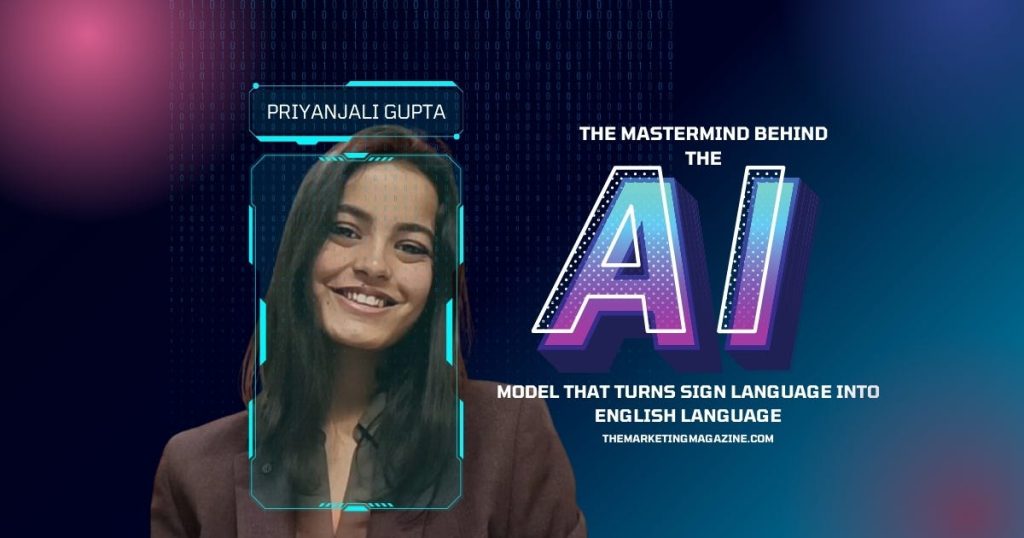Artificial intelligence often sparks both awe and apprehension, but some advancements highlight its potential to bring about positive change. One such inspiring story is that of Priyanjali Gupta, a student who has developed an innovative AI model designed to translate sign language into English.
From Personal Challenge to Public Triumph
In February 2021, Priyanjali Gupta’s mother urged her to leverage her skills in computer science, which she was studying at the Vellore Institute of Technology in Tamil Nadu, India. Gupta recalls this push as both challenging and motivational. “It made me contemplate what I could do with my knowledge and skillset,” Gupta told Interesting Engineering. This contemplation led to a transformative idea during a conversation with Alexa: creating inclusive technology to bridge communication gaps.
The Birth of an AI Model
Just a year after this pivotal moment, Gupta developed an AI model capable of translating sign language into English. Her project utilized the TensorFlow object detection API and applied transfer learning from a pre-trained model, demonstrating both technical expertise and innovative thinking.
For those less familiar with AI, Gupta’s achievement might seem complex, but its impact is clear. Her model processes sign language gestures captured via a computer webcam, translating them into spoken English. The dataset used for training the model was manually created and annotated, providing a foundation for its accuracy.
Gupta drew inspiration from a video by data scientist Nicholas Renotte on real-time sign language detection. She noted that the current model is trained on single frames, but future updates could involve using Long-Short Term Memory (LSTM) networks to enhance its ability to interpret sign language from video sequences.
Viral Recognition and Future Aspirations
Gupta’s work quickly gained widespread attention and acclaim after she shared it online. The positive feedback was overwhelming, with supporters encouraging her to continue her efforts and collaborate with the deaf community. One supporter remarked, “Join minds with others who share this passion, include deaf people, get their inputs, see if you can apply them, and keep on keeping on. Kudos to you. This is how we change the world.”
Despite the praise, Gupta acknowledged the ongoing learning process and the need for further development. She emphasized the importance of normalizing sign languages and other modes of communication to improve accessibility for the specially-abled.
A Bright Future Ahead
As of 2022, Gupta’s LinkedIn profile describes her as a “self-starter with a keen interest in development and research,” actively seeking opportunities to apply her technical knowledge to solve contemporary challenges. Her AI-powered sign language translator represents a significant step toward greater inclusivity and showcases the potential of technology to make a meaningful impact.
